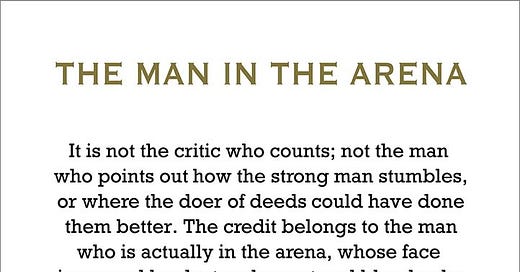A Few Things: The Brain Drain, The Future Of Work, What's Next According to GS, Breathing Right, ARK's Big Ideas, What To Watch In Crypto
January 29, 2022
“Experience is a hard teacher. She gives the test first and the lessons afterward.”
- Anonymous
“Success is not a gleaming shiny mountain. It is a pile of mistakes that you are standing on, instead of laying under…”
- Christy Wright
“Our greatest weakness lies in giving up. The most certain way to succeed is always to try just one more time.”
- Thomas A. E…


